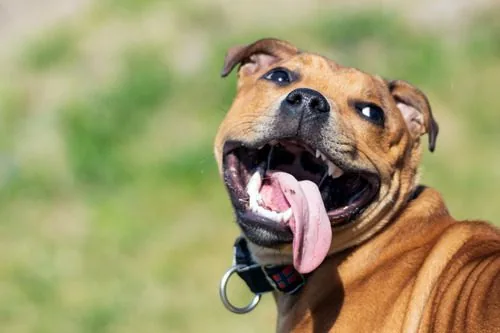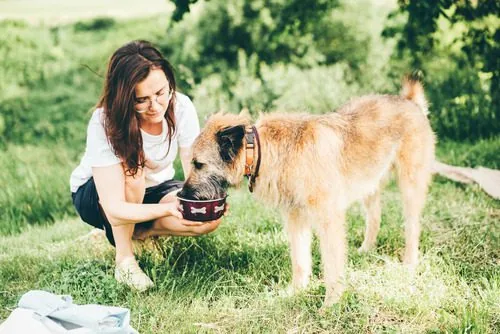Why Does My Dog Keep Panting?
Dog panting is a common behavior that owners often overlook as a normal part of their pet’s routine. However, understanding why dogs pant is crucial for ensuring your furry companion’s well-being. In this comprehensive guide, we’ll delve into the reasons behind dog panting, when it might indicate a more serious issue, and what steps you can take to keep your pet healthy and comfortable.

Causes and Risk Factors for Dog Panting
Dog panting serves as a natural mechanism for regulating body temperature, especially when they’re feeling overheated or after engaging in physical activity. However, excessive panting can signal underlying health issues or environmental factors that need attention. Factors such as obesity, heart problems, respiratory disorders, anxiety, and heatstroke can all contribute to abnormal panting in dogs.
Symptoms of Serious Health Problems Related to Dog Panting
While occasional panting is normal, persistent or excessive panting may indicate a health problem requiring veterinary attention. Watch out for accompanying symptoms such as:
- Lethargy
- Coughing
- Difficulty breathing
- Drooling
- Pale gums
- Collapse
These signs could indicate conditions like heatstroke, heart disease, respiratory infections, or even cancer.
Recognizing When Veterinary Care is Necessary
If you notice any concerning symptoms or changes in your dog’s panting behavior, it’s essential to seek professional veterinary care promptly. Your veterinarian will conduct a thorough physical examination and may recommend further diagnostic tests such as bloodwork, X-rays, or echocardiograms to pinpoint the underlying cause. Early detection and intervention can significantly improve your dog’s prognosis and quality of life.
Diagnostic Process for Problematic Dog Panting
During the diagnostic process, your veterinarian will work to identify the root cause of your dog’s abnormal panting. This may involve assessing their medical history, performing a physical examination, and conducting various tests to rule out potential health issues. Diagnostic imaging such as X-rays or ultrasounds can provide valuable insights into the condition of your dog’s heart, lungs, and other vital organs.
Importance of Regular Veterinary Care
Regular veterinary check-ups play a crucial role in maintaining your dog’s overall health and well-being. Your veterinarian can detect early signs of illness, offer preventive care measures, and provide guidance on managing conditions like obesity or anxiety that may contribute to excessive panting. By staying proactive about your pet’s healthcare needs, you can help ensure they lead a happy and healthy life.
Preventing and Managing Dog Panting
While some causes of dog panting are beyond your control, there are steps you can take to minimize the risk and keep your pet comfortable:
- Ensure they have access to fresh water and shade, especially during hot weather.
- Avoid leaving them in hot cars or exposing them to strenuous exercise in extreme temperatures.
- Additionally, maintaining a healthy weight through regular exercise and a balanced diet can help prevent obesity-related respiratory issues.
Protecting Your Pet’s Health
Understanding why your dog pants is essential for safeguarding their health and well-being. By recognizing the signs of abnormal panting and seeking timely veterinary care, you can address underlying health issues and ensure your pet stays happy and healthy for years to come. If you have any concerns about your dog’s panting behavior, don’t hesitate to contact Boughton Square Animal Clinic at (630) 759-0093 or make an appointment with one of our experienced veterinarians. Your pet’s health is our top priority.
Recent Posts
6 Possible Causes for Your Cat’s Sneezing
6 Possible Causes for Your Cat’s Sneezing Cats are known for their curious and playful nature, but…
Why is My Dog Eating Grass?
Why is My Dog Eating Grass? Dogs are known for their curious behaviors, and one that often…
Can Dogs Eat Marshmallows?
Can Dogs Eat Marshmallows? Marshmallows are a popular treat for many people, but pet owners often wonder,…
Can Dogs Get Sunburn?
Can Dogs Get Sunburn? As summer approaches and the days get longer, many pet owners look forward…
Dog Dehydration: Symptoms, Treatment and Prevention
Dog Dehydration: Symptoms, Treatment and Prevention Dehydration in dogs is a common but often overlooked condition that…
About Boughton Square Animal Clinic
Since 1979, Boughton Square Animal Clinic has served Bolingbrook, IL and surrounding communities as both a veterinary care provider and a devoted partner in treating your animal family members for life.






